MercoPress. South Atlantic News Agency
Tag: Argentine pesos
-
Friday, January 17th 2025 - 09:15 UTC
Argentina accepting other currencies besides pesos
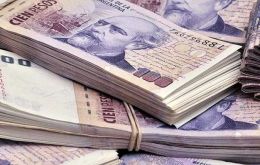
Effective Friday, Argentines will be allowed to fill out price tags in the currency of their choice (most likely US dollars), the Central Bank (BCRA) announced Thursday, in what has been regarded as a first step towards the dollarization of the economy, one of President Javier Milei's electoral promises.
-
Tuesday, April 16th 2019 - 09:19 UTC
Argentina begins IMF approved daily auction of US$ 60m to recover Pesos
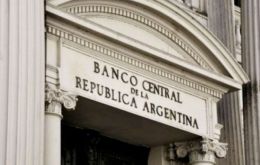
Argentina sold US$ 60 million in the foreign exchange market on Monday, traders said, marking the start of peso-buying program approved by the International Monetary Fund and aimed at bolstering government finances.
-
Tuesday, March 19th 2019 - 09:05 UTC
Another corruption charge for ex president Cristina Fernandez: fraudulent import of liquid gas

Argentina's former president Cristina Kirchner was charged in yet another corruption investigation on Monday, in this case over the fraudulent import of liquid gas. Judge Claudio Bonadio, who Cristina Kirchner accuses of political persecution, requested that the ex-president be placed in pre-trial detention, but her partial immunity as a senator shields her from imprisonment.
-
Friday, August 31st 2018 - 07:43 UTC
Argentine peso plummets and central bank raises interest rate to 60%
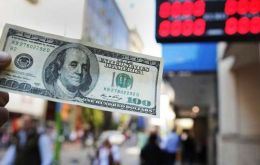
The Argentine Peso plummeted 15.6% to a new record on Thursday, and ended trading at 39.87 after having reached almost 42 Pesos to the US dollar in mid afternoon. This follows on the Wednesday which also witnessed the Argentine currency slide 7% to the greenback.
-
Wednesday, October 23rd 2013 - 01:36 UTC
US dollar in Argentina reached 10 Pesos ahead of Sunday's mid-term election
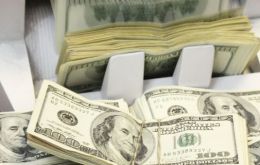
The US dollar in Buenos Aires reached on Tuesday 10 Argentine Pesos (buying price) and 10.05 pesos (selling price) in the informal market, 15 cents higher compared to its last closing price, pushed by the tourist sector, and as the government crackdown on the so called city “exchange caves” eased up.
-
Saturday, July 20th 2013 - 05:46 UTC
Money exchange controls limit Argentines from travelling to Brazil to greet Pope Francis
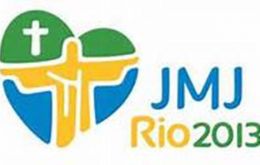
Despite the pope is Argentine and on Monday he will be making his first pastoral trip overseas to Brazil, Argentine government strict currency controls are making it difficult for prospective pilgrims to travel. An estimated 60.000 Argentines are expected to travel to Rio do Janeiro for the grand event.
-
Friday, January 11th 2013 - 08:36 UTC
Argentine tourists must pay 8 pesos for the US dollar in neighbouring countries
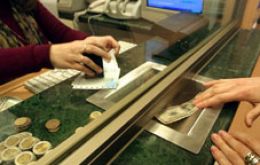
Following on the climbing tendency since the beginning of the year, the ‘blue’ or ‘parallel’ US dollar traded in Buenos Aires at 7.25 Argentine Pesos with a 46% gap over the ‘official’ dollar that remained relatively stable at 4.95 Pesos.
-
Thursday, October 11th 2012 - 04:45 UTC
Argentine central bank confirms no restrictions for governments to purchase dollars
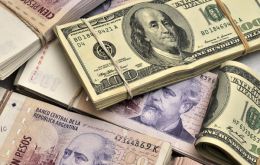
The Argentine central bank confirmed on Wednesday that there is no money exchange restrictions for the federal government or provinces to purchase US dollars to honour public debt issued offshore.
-
Saturday, July 7th 2012 - 00:35 UTC
Argentine central bank announces “pesification” of real estate operations
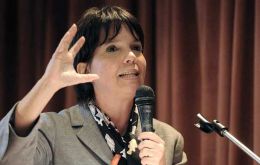
Following the official new curbs on US dollar purchasing for savers, the head of the Argentine Central Bank Mercedes Marcó del Pont came on stage to defend the measure and anticipate that operations in the real estate market will have to be done in Argentine Pesos.
-
Friday, May 18th 2012 - 09:41 UTC
Argentine former central bank chief anticipates “de facto devaluation”
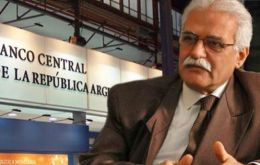
A former Argentine central bank president warned that if the economy follows on the current course, a “de facto devaluation” is round the corner because of the growing gap between the official and parallel exchange rates for the US dollar.
